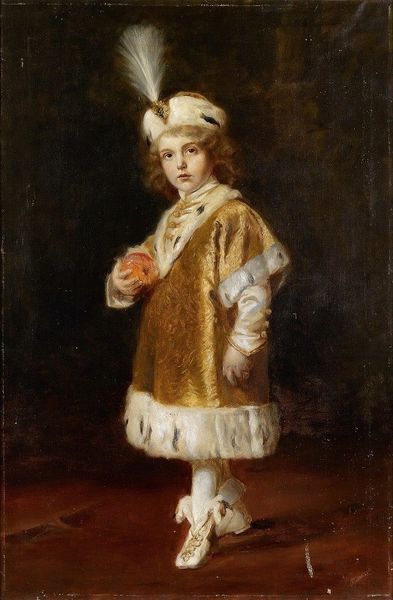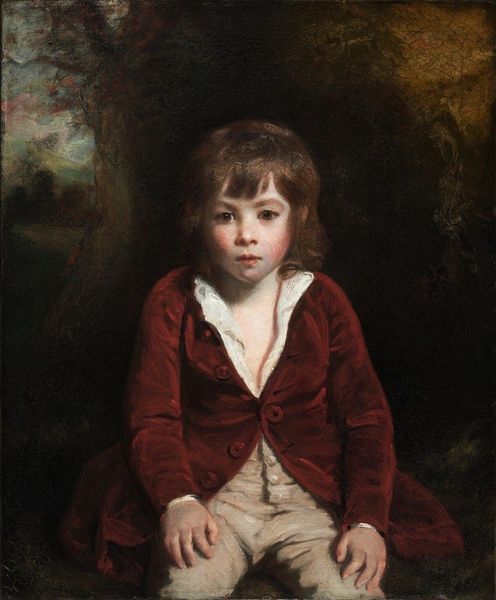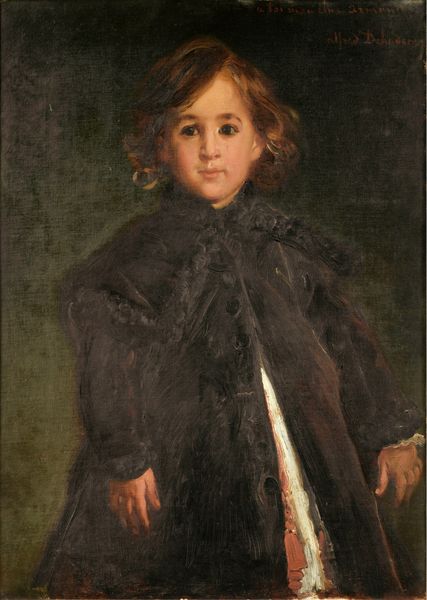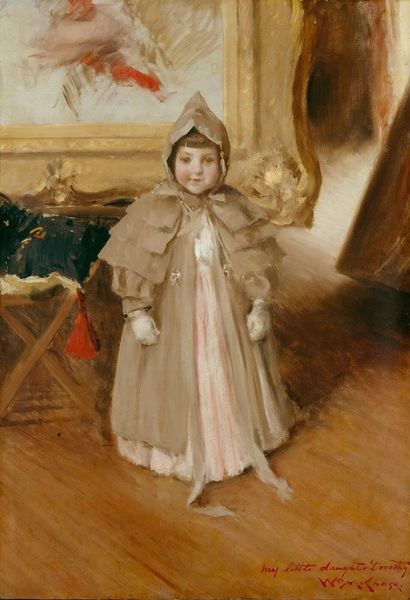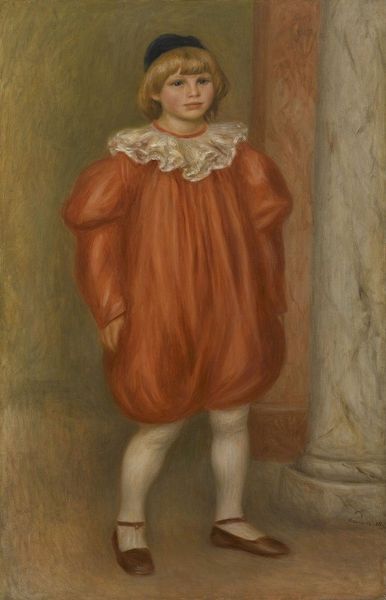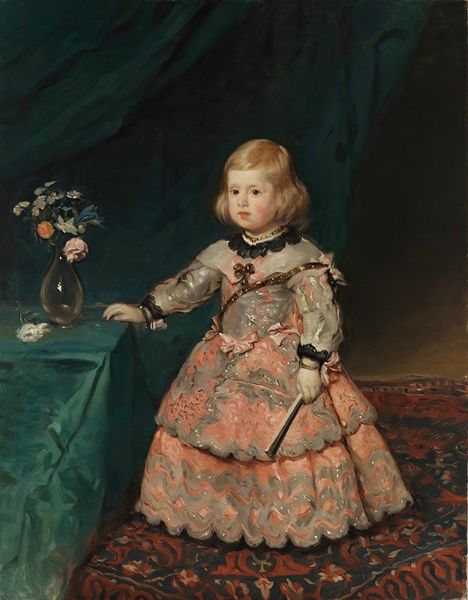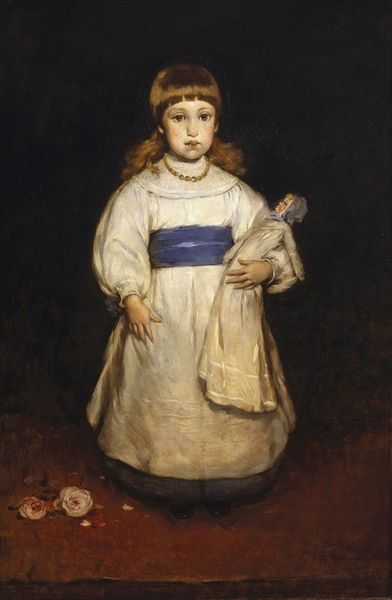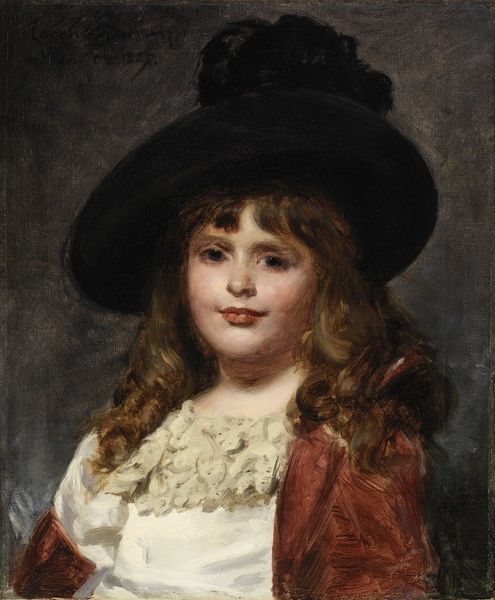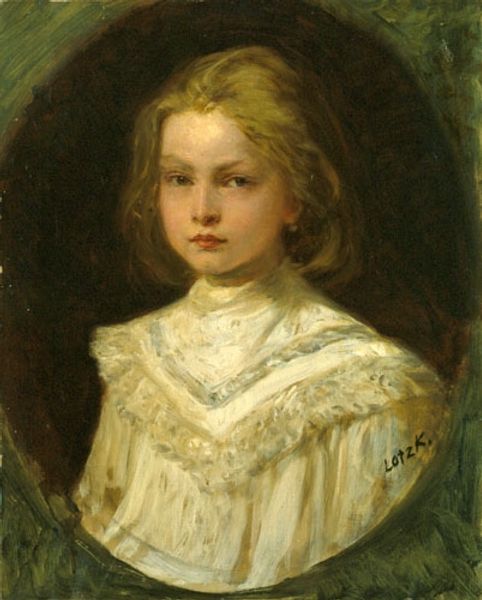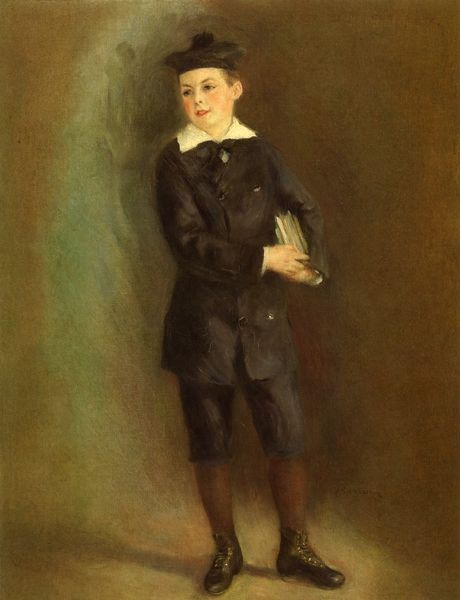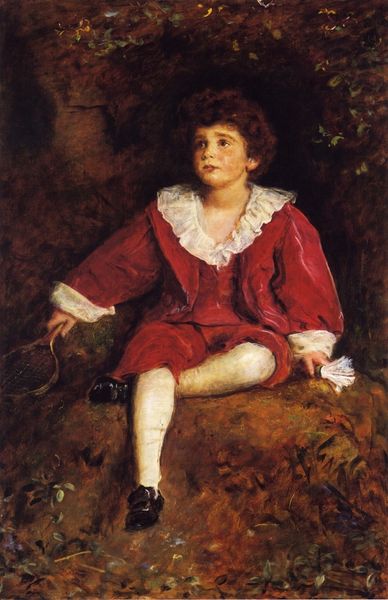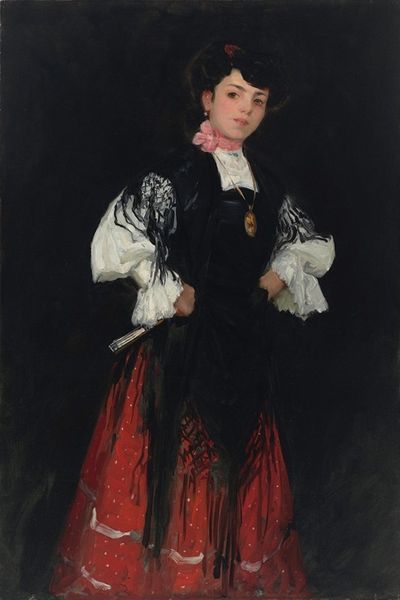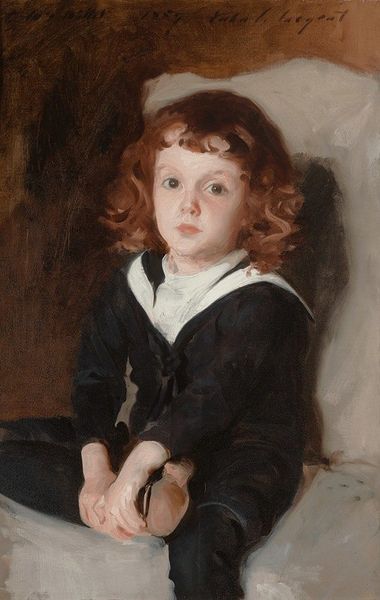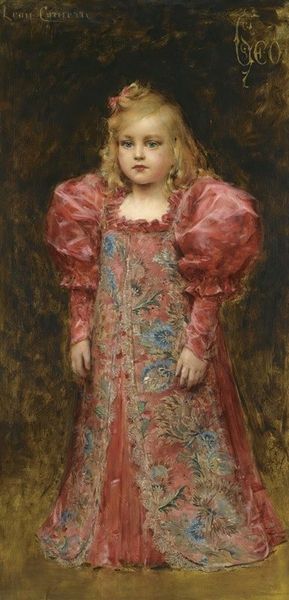
oil-paint
#
portrait
#
figurative
#
impressionism
#
oil-paint
#
dog
#
oil painting
#
animal portrait
#
portrait drawing
#
genre-painting
#
portrait art
#
fine art portrait
Copyright: Public Domain: Artvee
Editor: This is Mary Cassatt's "Eddy Cassatt" from 1875, rendered in oil paint. There's something so formal yet melancholic about the young boy's gaze and the rich red hues. What strikes you about this portrait? Curator: What I find fascinating is how Cassatt uses portraiture, typically a vehicle for displaying wealth and status, to subtly question societal norms surrounding gender and childhood in the late 19th century. Notice Eddy's clothing – it’s almost theatrical. Does it strike you as typical attire for a young boy? Editor: Not really, it feels very staged, like a costume almost. Why would Cassatt portray him this way? Curator: Exactly! By dressing Eddy in these rather ambiguous garments and including props like the riding crop, Cassatt may be playing with traditional portrait conventions. This era increasingly emphasized the “naturalness” of children, often contrasted with performative adulthood. She's potentially commenting on how children were being "performed" for the benefit of societal expectations and for a specific audience. Think of the emerging culture of child pageants and orchestrated playdates in upper-class society at the time. Editor: That’s interesting. So, she’s not just painting a portrait; she’s making a statement about the social expectations placed on children. It also begs the question, was this Eddy’s idea, or someone else's? Curator: Precisely. Who controls the narrative and presentation of Eddy? Also, consider where this painting might have been displayed and for whom. The answers give us a peek into Cassatt's own position and critique within that society. Editor: This makes me see the portrait in a completely new light – it’s more than just a picture, it's a conversation about societal roles and expectations! Curator: Indeed, Cassatt cleverly used visual language to invite viewers to consider these hidden power dynamics within seemingly innocent representations.
Comments
No comments
Be the first to comment and join the conversation on the ultimate creative platform.
